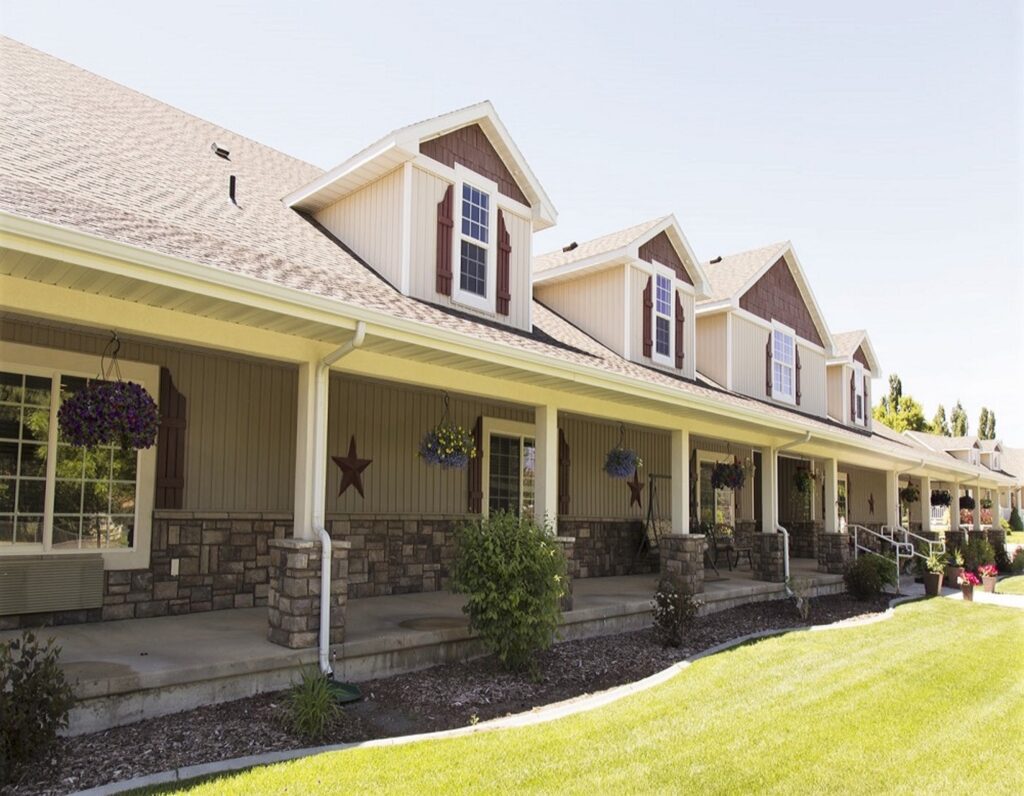
The United States of Aging Survey found that approximately 90% of seniors hope to “age in place,” remaining in their current homes as they grow older. However, two-thirds of people over the age of 65 need help completing activities of daily living (ADLs), making it difficult for them to live independently.
Many senior parents refuse to go to a nursing home, despite their inabilities. Some older adults may skip doctor’s visits, claiming they’re perfectly healthy. Others have a visibly difficult time doing things on their own but won’t accept help. Aging parents’ obstinacy puts strain on adult children who stress about the safety of their loved ones.
If your parent wants to leave assisted living or refuses to go in the first place, this blog is for you. Our goal is to help you help your parents, and sometimes that means compromise. Assisted living communities aren’t for everyone. In this blog, we discuss assisted living alternatives for parents that refuse to go to a nursing home or other senior living facilities.
What to Do If Your Parent Refuses to Go to a Nursing Home
If your parent refuses to go to a nursing home or assisted living facility, you’re not alone. Referring back to The United States of Aging Survey, the majority of seniors don’t want to move from their homes. Only 2% of Americans over 65 live in assisted living facilities and 4% live in nursing homes. Clearly, senior living facilities are not the preferred choice of older adults.
There are plenty of blogs that give tips on how to talk to your parents about assisted living. In this one, we want to give you a few assisted living alternatives. If you believe your parent needs assisted living, but they won’t budge, consider these assisted living alternatives.
Assisted Living Alternatives for Older Adults
1. In-home Care
In-home care allows older adults to age in place by providing someone called a caregiver who can assist with day-to-day activities or even fill a need for companionship. Note that in-home care is not the same as home health care, which is administered by a trained healthcare professional. Though, caregivers do receive thorough training on how to provide non-medical care to older adults with a variety of needs.
Caregiving may include personal care services like bathing and toileting, support services such as meal preparation and light housekeeping, and even transportation services. In-home care is also incredibly flexible. From helping your family member a few hours a day to supporting them 24/7, there’s a home care option for them.
The beauty of home care is that it keeps aged loved ones in a comfortable, familiar setting while providing the support they need to remain independent.
2. Adult Day Care
Adult day care centers offer a safe environment where families can send their aging loved ones during the day. This enables adult children to maintain their full-time jobs or gives them a break from constant caregiving duties. There are two types of adult day care: adult social day care and adult day health care.
Adult social day care programs supply social interaction, nutritious meals, engaging activities, general supervision, and limited health-related services. Adult day health care offers health, therapeutic, and social services for those with serious medical conditions and those at risk of requiring nursing home care. With adult day care ranging from $25 to $100/day, it can be a cost-effective assisted living alternative.
3. Respite Care
Respite care gives family caregivers a temporary break from their daily caregiving responsibilities. Depending on how much time off is needed, respite care can last anywhere from a few hours to several weeks. A significant benefit of respite care is reducing the number of caregiving mistakes due to stress and exhaustion.
Often, family caregivers feel that they can’t take time off for themselves. They believe they have a duty to care for their aging parents and it’s selfish to need respite. However, this can’t be further from the truth. Taking care of yourself allows you to take better care of your aging parent. After time away, you’ll come back feeling refreshed, more alert, patient, and able to make decisions from a stable – not stressed out – place.
Speak With a Geriatric Care Manager Today
When it comes to making a decision about an aging parent’s short- or long-term care, there are many assisted living alternatives and options available. However, it can be difficult to know which is best. In those moments, you can rely on the expertise of geriatric care managers.
Geriatric care managers are experts in elder care who work with adult children to orchestrate the best care solutions for aging family members. At Stowell Associates, we’ve been providing high-quality elder care to families in Wisconsin for decades. Our integrated approach pairs each family with (1) a dedicated geriatric care manager who creates and oversees a personalized senior care plan and (2) professionally trained caregivers from TheKey who put the plan in action.
Give us a call at 414-488-6491 to learn more about how we can help keep your aging loved one at home while giving you peace of mind.









